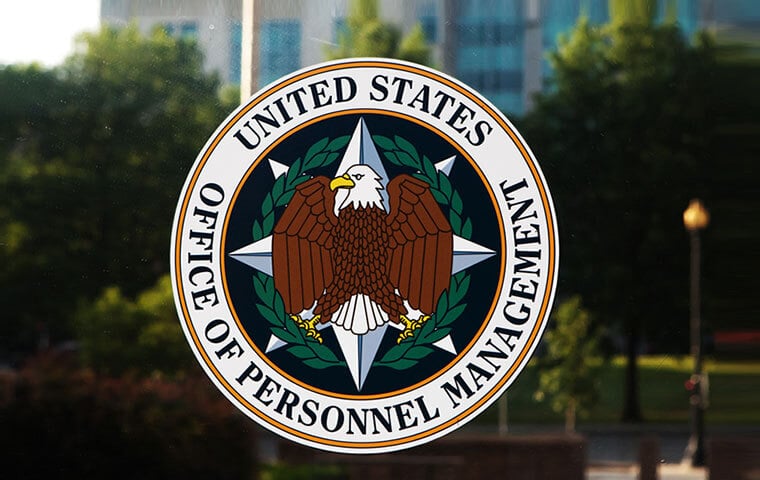 The new guidance addresses issues including the conditions in which the restrictions do not apply—mainly involving law enforcement positions. Image: Mark Van Scyoc/Shutterstock.com
By: FEDweek Staff
The new guidance addresses issues including the conditions in which the restrictions do not apply—mainly involving law enforcement positions. Image: Mark Van Scyoc/Shutterstock.com
By: FEDweek StaffOPM has issued (at www.chcoc.gov) further instructions to agencies on complying with a 2019 law that generally limits their requests for information about a federal job applicant’s criminal history prior to making a conditional job offer.
Under the Fair Chance to Compete for Jobs Act, in general a criminal record is not to be an automatic disqualifier and agencies generally are required to make tentative selections from among the highest-rated candidates who can comply with the requirements of the position. Criminal history might be disqualifying during the suitability determination phase, though, and some laws prohibit federal employment depending on the crime committed or type of position being sought.
OPM last summer finalized rules to carry out that law including noting that the law created a system for applicants to allege violations of their rights, to be investigated by each agency involved and leading to potential disciplinary actions and fines against responsible agency officials.
The new guidance addresses issues including the conditions in which the restrictions do not apply—mainly involving law enforcement positions—a requirement that agencies ensure that automated systems have controls to prevent the untimely collection of criminal history information; requirements to post notices in the vacancy announcements of the law and appeal rights under it; and more.
It adds: “Agencies must establish and publish well-documented procedures for meeting this requirement and share them widely with human resources or security personnel in roles that may cause them to engage with applicants during the pre-offer stage. Agencies should educate their workforce and contractors about their responsibilities under the Act. This will help prevent employees from violating provisions of the Act, which would violate the applicant’s rights and potentially subject the employee to a complaint, and, if founded, adverse action.”
“Agencies may also consider presenting conditional job offers to applicants, in writing, if the initial conditional offer was made verbally. This will help establish clear recordkeeping as to when an offer is made. Having communications and dates well documented is helpful in the event an applicant raises a claim about the timing of the collection of criminal history information,” it says.
OPM Guidance Addresses Pay Issues arising During, After Shutdown
Financial Impact of Shutdown Starts to Hit Home; WH Threatens No Back Pay
Threat of RIFs Hangs Over Federal Workforce as Shutdown Continues
Surge of Retirement Applications Is in the Pipeline, Says OPM
OPM Advises Agencies on Conducting RIFs During Shutdown
Shutdown Stalls Hegseth’s Reforms on Two Fronts as Pentagon Accelerates Cuts
See also,
5 Steps to Protect Your Federal Job During the Shutdown
Over 30K TSP Accounts Have Crossed the Million Mark in 2025
The Best Ages for Federal Employees to Retire

